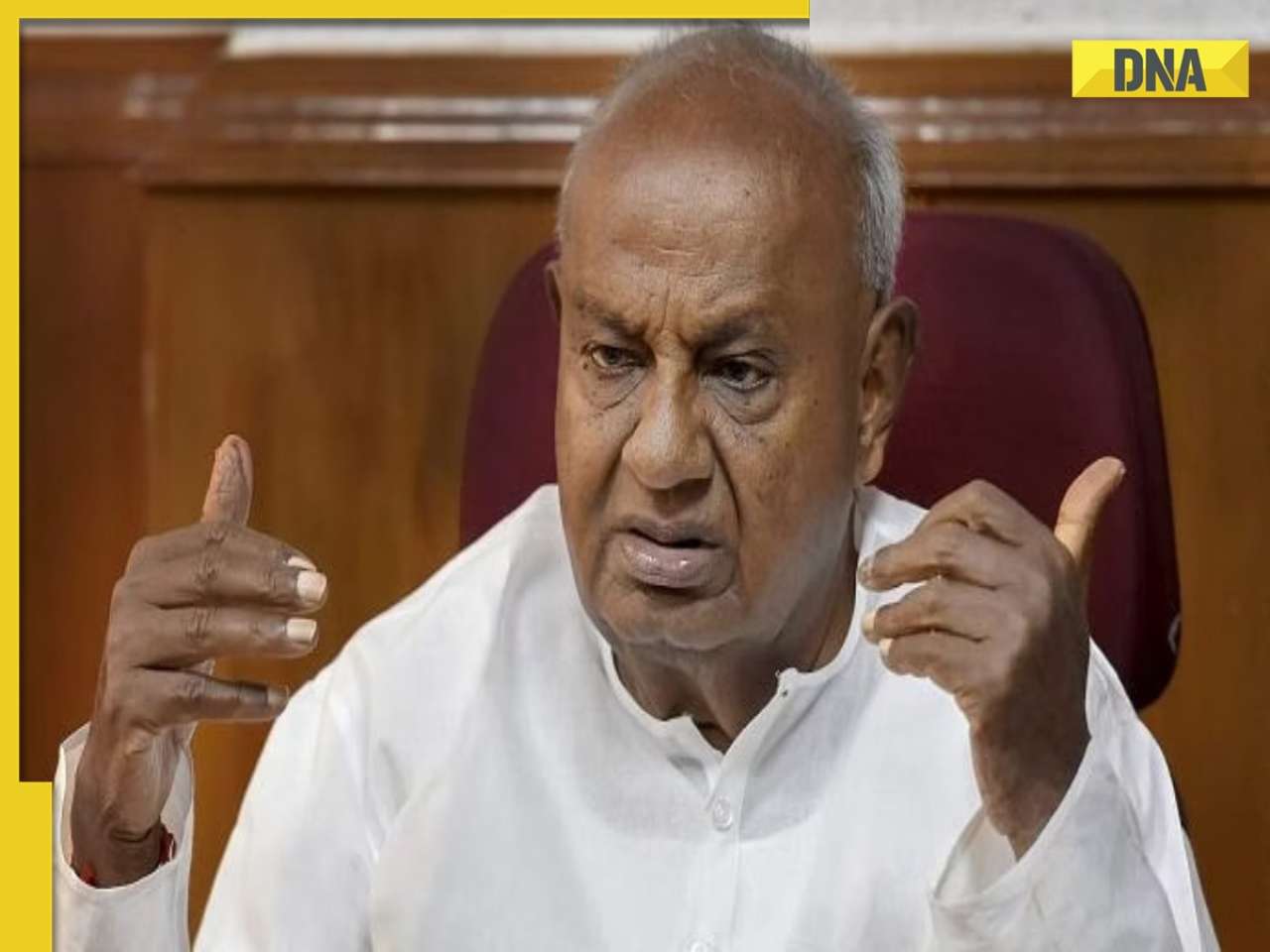There appears to be a lack of consensus in economic policymaking circles in China on which is the bigger problem: inflation or an economic slowdown.
China’s GDP grew at 10.1% in the second quarter of 2008, the slowest pace of economic growth since 2005. Consumer prices rose by 7.1% in June, down from 7.7% in May. JP Morgan’s chairwoman of China equities Jing Ulrich spoke to DNA Money’s Venkatesan Vembu in Hong Kong on the “twin challenges facing the Chinese economy” — and the likely policy initiatives going forward. Excerpts:
There appears to be a lack of consensus in economic policymaking circles in China on which is the bigger problem: inflation or an economic slowdown.
The Chinese economy is facing twin challenges: inflation and potentially slower growth. For now, slower growth is not the main problem, because you still have GDP growth at above 10%, which is a very health growth rate. Inflation seems to be the bigger near-term challenge: it’s at a 10-year high and very stubborn. It’s driven by three considerations: food inflation, raw material prices increases and monetary expansion.
For the past one year, the government has been trying to tackle inflation, and growth rate was not a problem. But in the second half of this year, the government may have to introduce additional policies to try and avert an economic slowdown. These policies will be concentrated in fiscal spending, infrastructure spending — on railway construction, ports, and upgrading power grids. I do expect the economy to continue growing at a healthy rate. But compared to last year or 2006, the growth rate may be a bit moderate.
It’s difficult to say which of this twin challenges is more important. I do believe the Chinese government’s policy will be aimed at tackling both-fighting inflation and investing in infrastructure to avert a sharp economic slowdown.
Is there a risk that in stimulating economic growth, the government could stoke inflation further?
It is a challenge. But you have to understand that inflation in China comes from various sources: the most important source is food. But I do believe that in the second half of the year, if the government is trying to enhance infrastructure spending-on railways, power and so on-that sort of investment will not really translate directly into higher CPI inflation. But there’s always a risk. Economic principles say if you are spending more, you run the risk of higher inflation.
What about the crisis facing Chinese exporters?
In the second quarter, one of the bigger challenges was export growth. In June, export growth slowed sharply compared to May. A lot of this slowdown has been caused by the slowdown in the global economy, particularly the US and European markets. The US accounts for 18% of China’s exports, and the EU for about 22%. But the bright spot for Chinese exports has been the emerging markets, which have overtaken the US and Europe to become the largest buyers of Chinese goods. So, you have Brazil, the Middle East and India buying more and more Chinese-made goods. Export growth to emerging markets has remained very strong and is offsetting some of the slowdown in exports to the US and Europe.
We expect the government to soon initiate measures to restore the healthy pace of export growth.
Do you expect China’s monetary policy to remain tight going forward?
We expect CPI to remain elevated in the second half of the year because although food prices have moderated, there is still a lot of pressure on prices of vegetables, edible oils and proteins in general. Given the current inflationary picture, monetary policy will be relatively tight. We may see further increases in reserve requirement ratio; we could see possibly see interest rate increases as well, given that interest rates are in the negative. But despite a tight monetary policy, we expect the government to pursue an active fiscal policy, upgrading infrastructure.
How serious is the problem of China’s hot money inflows, which some analysts argue have overwhelmed China’s monetary policy management?
China’s foreign exchange reserves build-up has been very rapid in the first half of this year, although there has been a slight deceleration in June. The sum of the FDI and trade surplus is much smaller, relative to the build-up of forex reserves.
There are many factors impacting this build-up. Some people assume that all of this difference is accounted for by hot money inflows. I think some of these estimates are exaggerated. It is very difficult to have an accurate estimate of how much hot money is coming in.
In your estimation, is a one-time revaluation of the yuan a remedy for these hot money inflows?
Inflation is always a monetary phenomenon, so inflows of money into China are one key reason for higher inflation. The central bank has tightened monetary policy over the last year: the reserve requirement ratio has more than doubled, and interest rates went up six times in 2007.
In the second half of 2008, we could see one or two more increases in reserve ratio because of the capital inflows into China, and perhaps even an interest rate hike. But that depends on the global environment.
Currency appreciation is one way to try and end inflation, but it’s not the only way.
There are many different considerations that the Chinese leadership has to take into account. For instance, the export sector is experiencing a much more challenging environment now, given the global slowdown. We therefore expect a steady appreciation of the yuan, but we don’t expect anything too drastic-like a one-off revaluation.
How serious is Chinese financial institutions’ exposure to Fannie Mae and Freddy Mac?
Chinese financial institutions’ exposure to US agency debt-such as Fannie Mae and Freddy Mac-will not directly impact the Chinese economy.
We know that some of the FIs in China have exposure to agency debt, but we don’t know the exact amount. There will be some impact on the institutions that hold the debt, but I don’t think the impact will be substantial.
![submenu-img]() This singer helped BCCI when it had no money to award 1983 World Cup-winning Indian cricket team, raised 20 lakh by...
This singer helped BCCI when it had no money to award 1983 World Cup-winning Indian cricket team, raised 20 lakh by...![submenu-img]() Virat Kohli’s new haircut ahead of RCB vs CSK IPL 2024 showdown sets internet on fire, see here
Virat Kohli’s new haircut ahead of RCB vs CSK IPL 2024 showdown sets internet on fire, see here![submenu-img]() BCCI bans Mumbai Indians skipper Hardik Pandya, slaps INR 30 lakh fine for....
BCCI bans Mumbai Indians skipper Hardik Pandya, slaps INR 30 lakh fine for....![submenu-img]() 'Justice must prevail': Former PM HD Deve Gowda breaks silence in Prajwal Revanna case
'Justice must prevail': Former PM HD Deve Gowda breaks silence in Prajwal Revanna case![submenu-img]() India urges students in Kyrgyzstan to stay indoors amid violent protests in Bishkek
India urges students in Kyrgyzstan to stay indoors amid violent protests in Bishkek![submenu-img]() Meet IIT graduates, three friends who were featured in Forbes 30 Under 30 Asia list, built AI startup, now…
Meet IIT graduates, three friends who were featured in Forbes 30 Under 30 Asia list, built AI startup, now…![submenu-img]() Meet woman who cracked UPSC in fourth attempt to become IAS officer, secured AIR...
Meet woman who cracked UPSC in fourth attempt to become IAS officer, secured AIR...![submenu-img]() Meet IIT JEE 2024 all-India girls topper who scored 100 percentile; her rank is…
Meet IIT JEE 2024 all-India girls topper who scored 100 percentile; her rank is…![submenu-img]() Meet PhD wife of IIT graduate hired at Rs 100 crore salary package, was fired within a year, he is now…
Meet PhD wife of IIT graduate hired at Rs 100 crore salary package, was fired within a year, he is now…![submenu-img]() Meet woman not from IIT, IIM or NIT, cracked UPSC exam in first attempt with AIR...
Meet woman not from IIT, IIM or NIT, cracked UPSC exam in first attempt with AIR...![submenu-img]() DNA Verified: Is CAA an anti-Muslim law? Centre terms news report as 'misleading'
DNA Verified: Is CAA an anti-Muslim law? Centre terms news report as 'misleading'![submenu-img]() DNA Verified: Lok Sabha Elections 2024 to be held on April 19? Know truth behind viral message
DNA Verified: Lok Sabha Elections 2024 to be held on April 19? Know truth behind viral message![submenu-img]() DNA Verified: Modi govt giving students free laptops under 'One Student One Laptop' scheme? Know truth here
DNA Verified: Modi govt giving students free laptops under 'One Student One Laptop' scheme? Know truth here![submenu-img]() DNA Verified: Shah Rukh Khan denies reports of his role in release of India's naval officers from Qatar
DNA Verified: Shah Rukh Khan denies reports of his role in release of India's naval officers from Qatar![submenu-img]() DNA Verified: Is govt providing Rs 1.6 lakh benefit to girls under PM Ladli Laxmi Yojana? Know truth
DNA Verified: Is govt providing Rs 1.6 lakh benefit to girls under PM Ladli Laxmi Yojana? Know truth![submenu-img]() Kiara Advani stuns in Prabal Gurung thigh-high slit gown for her Cannes debut, poses by the French Riviera
Kiara Advani stuns in Prabal Gurung thigh-high slit gown for her Cannes debut, poses by the French Riviera![submenu-img]() Heeramandi star Taha Shah Badussha makes dashing debut at Cannes Film Festival, fans call him ‘international crush’
Heeramandi star Taha Shah Badussha makes dashing debut at Cannes Film Festival, fans call him ‘international crush’![submenu-img]() Streaming This Week: Madgaon Express, Zara Hatke Zara Bachke, Bridgerton season 3, latest OTT releases to binge-watch
Streaming This Week: Madgaon Express, Zara Hatke Zara Bachke, Bridgerton season 3, latest OTT releases to binge-watch![submenu-img]() Sunanda Sharma exudes royalty as she debuts at Cannes Film Festival in anarkali, calls it ‘Punjabi community's victory’
Sunanda Sharma exudes royalty as she debuts at Cannes Film Festival in anarkali, calls it ‘Punjabi community's victory’![submenu-img]() Aishwarya Rai walks Cannes red carpet in bizarre gown made of confetti, fans say 'is this the Met Gala'
Aishwarya Rai walks Cannes red carpet in bizarre gown made of confetti, fans say 'is this the Met Gala'![submenu-img]() Haryana Political Crisis: Will 3 independent MLAs support withdrawal impact the present Nayab Saini led-BJP government?
Haryana Political Crisis: Will 3 independent MLAs support withdrawal impact the present Nayab Saini led-BJP government?![submenu-img]() DNA Explainer: Why Harvey Weinstein's rape conviction was overturned, will beleaguered Hollywood mogul get out of jail?
DNA Explainer: Why Harvey Weinstein's rape conviction was overturned, will beleaguered Hollywood mogul get out of jail?![submenu-img]() What is inheritance tax?
What is inheritance tax?![submenu-img]() DNA Explainer: What is cloud seeding which is blamed for wreaking havoc in Dubai?
DNA Explainer: What is cloud seeding which is blamed for wreaking havoc in Dubai?![submenu-img]() DNA Explainer: What is Israel's Arrow-3 defence system used to intercept Iran's missile attack?
DNA Explainer: What is Israel's Arrow-3 defence system used to intercept Iran's missile attack?![submenu-img]() This singer helped BCCI when it had no money to award 1983 World Cup-winning Indian cricket team, raised 20 lakh by...
This singer helped BCCI when it had no money to award 1983 World Cup-winning Indian cricket team, raised 20 lakh by...![submenu-img]() This film had 3 superstars, was unofficial remake of Hollywood classic, was box office flop, later became hit on...
This film had 3 superstars, was unofficial remake of Hollywood classic, was box office flop, later became hit on...![submenu-img]() Meet Nancy Tyagi, Indian influencer who wore self-stitched gown weighing over 20 kg to Cannes red carpet
Meet Nancy Tyagi, Indian influencer who wore self-stitched gown weighing over 20 kg to Cannes red carpet![submenu-img]() Telugu actor Chandrakanth found dead days after rumoured girlfriend Pavithra Jayaram's death in car accident
Telugu actor Chandrakanth found dead days after rumoured girlfriend Pavithra Jayaram's death in car accident![submenu-img]() Meet superstar who faced casting couch at young age, worked in B-grade films, was once highest-paid actress, now..
Meet superstar who faced casting couch at young age, worked in B-grade films, was once highest-paid actress, now..![submenu-img]() Viral video: Flood-rescued dog comforts stranded pooch with heartfelt hug, internet hearts it
Viral video: Flood-rescued dog comforts stranded pooch with heartfelt hug, internet hearts it![submenu-img]() Dubai ruler captured walking hand-in-hand with grandson in viral video, internet can't help but go aww
Dubai ruler captured walking hand-in-hand with grandson in viral video, internet can't help but go aww![submenu-img]() IPL 2024: Virat Kohli drops massive hint on MS Dhoni’s retirement plan ahead of RCB vs CSK clash
IPL 2024: Virat Kohli drops massive hint on MS Dhoni’s retirement plan ahead of RCB vs CSK clash![submenu-img]() Do you know which God Parsis worship? Find out here
Do you know which God Parsis worship? Find out here![submenu-img]() This white marble structure in Agra, competing with Taj Mahal, took 104 years to complete
This white marble structure in Agra, competing with Taj Mahal, took 104 years to complete


























































)
)
)
)
)
)